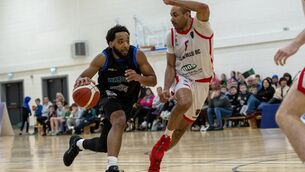What have the Kiwis got that we haven’t?
ON Saturday night in the minutes before Usain Bolt created history in the 100m final, an impromptu party had developed in a corner of the Bird’s Nest Stadium.
At one stage the gathering spilled onto the track forcing an official to herd the excited group onto the infield so as not to impede the 800m heats of the Women’s Heptathlon.














